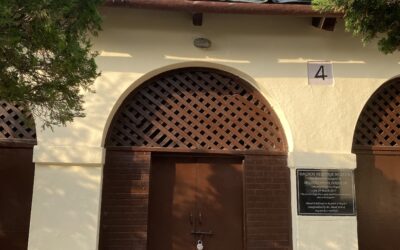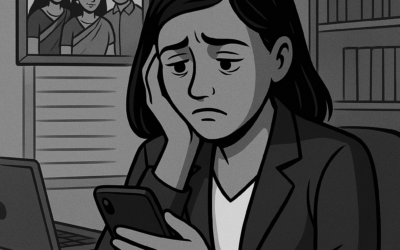Sir George Mallory, O.B.E. stepped off the plane and immediately had to shield his eyes from the sun. It was the height of the Mexican summer and even before he got into the waiting car at the tarmac, he was sweating. Once again, he wondered why he was here. Then he shook his head – he knew the answer. He was here as an agent of civilization out to showcase its benefits – and how to deal with its ills – to a restive local population. Opening his briefcase, he once again removed the dossier he carried on Sinaloa Metals Inc. and began to read.
Five years ago, prospectors had discovered enormous reserves of bauxite and manganese under the hills of Chiapas territory in southern Mexico. Rather than celebrating, the discoveries were met almost entirely with dismay for the region had long since been at war with the Mexican state over land rights following the signing of the North American Free Trade Agreement (NAFTA). Everyone knew that the last thing the locals – and especially the Zapatista Liberation Army that was fighting there – were interested in was selling out to exploitative miners next.
But the public declaration of the findings meant there was bound to be substantial pressure exerted onto the Mexican govt. – by both giant mining corporations and the foreign govts. who supported them – to solve the problem one way or another. And this would only further destabilize an already failing peace process. So what was to be done? Well, to George, it was obvious. The natives needed a bit of an education, that’s all.
Specifically, they needed an education on the benefits of joining the market system rather than fighting it – positives which he himself had benefited from his whole life. For, though he was now fabulously wealthy, he had not started out that way. He was a completely self-made man who’d made his fortune first in shipping and then in venture capital. His father had been a railroad worker and his mother a part-time teacher – so he was no scion of the establishment. Or, at least, he didn’t used to be.
Of late he had become restless. He’d been in venture capital now for more than a decade and was itching to try something new – and especially something groundbreaking, so he could leave his mark on the world. When he first heard about the situation in Chiapas, he immediately hit upon what that might be – he was going to show the world a better way of protesting. Nay, not protesting – bargaining.
Typically, when one wants to diffuse a conflict-ridden situation, the first thing one does is to try to set up a process of dialogue between both parties. George had no patience for that method. It was slow and notoriously unreliable. He hadn’t made his money by waiting for all parties to come to an agreement. He was a man of action – unilateral action, if need be.
And so his first appointment was with Juan Rodriguez, President and CEO of Sinaloa Metals. They met at the Concordia Hotel, a 5-star venue which was unfortunately most famous for the siege carried out by the Zapatistas there during their attack on the capital at the start of their revolution. It had been specifically chosen by George himself. At precisely 2 in the afternoon, Mr. Rodriguez knocked on the door of their private dining chamber. It was opened by the waiter and George had his first look at the man. Tall and dark with small black eyes and a hooked nose, he looked no different from any other athletic Mexican his age. Except, of course, for the finely cut suit he wore.
After exchanging pleasantries, George got straight down to business. Sinaloa Metals was the company to whom the Chiapas reserve rights had been sold to by the govt., but the company would need an injection of capital to fully exploit it. They would need, in other words, someone like George. And, as it happened, he was willing to make a substantial investment. Mr. Rodriguez almost jumped out of his seat in exultation at the news. George merely smiled.
Two days later, George was sitting down with another Rodriguez in a somewhat ramshackle hut in La Realidad, the border town in Chiapas before the Zapatista controlled region. The less-than-impressive nature of his surroundings didn’t bother him – he had spent time in worse places in his day. Nor did he allow it to colour his views on the man opposite him – a sub-commander of the revolution who was reporting directly to their leader Markos. George knew the revolutionaries – and their peaceful political protest arm in Mexico city – had plenty of money. War of any kind needs funds. And he had a pretty good idea by now how much money that might be. Enough for around half, he estimated.
This Rodriguez was much gruffer in his dealings, but George actually appreciated that. There was no beating around the bush with these folks. It reminded him of his younger days pushing through tough shipping terms to clients. After explaining his proposition to the sub-commander, he had to wait six more days before a decision came through – time in order for them to “confer with their people” according to the sub-commander. The Zapatistas liked to call this “the speed of democracy” and liked to contrast it with the govts. own “speed of bureaucracy” in getting its own house in order. George cared for neither.
On the seventh day, George met the sub-commander again to hear their decision – they had accepted. The money would be ready within a week, the sub-commander reported as gruffly as before. George merely smiled.
Civilian protest against unpopular corporate actions had always struck George as a rather silly way of responding to business decisions. Business was all about money and so if you wanted to influence it, your best bet would be to join the system, not fight it. Established protest groups and militias had money available, but they chose to use it, in Georges’ view, in the most inefficient of ways. It would be far better for them to just use that money to buy into said firm and thereby influence it as full shareholders, complete with voting rights. In Chiapas, he intended to show the world the potential of this new approach.
Three months had passed since his meeting with sub-commander Rodriguez in La Realidad. George had returned home to London to await news on the breakthrough. Given how long the Zapatista revolution had stretched on for, he naturally expected a few accolades for his achievement. He would downplay it, of course. One does not bask in adulation publicly. At least, not someone of his stature and class. The Zapatistas were free to celebrate as wildly as they saw fit.
Walking into the dining room, he saw his wife Evelyn reading the morning paper as usual. She was an uncannily intelligent and thorough woman and was usually the one who pointed out the stories that might interest him. She was a worthy partner to have had on his journey through life and had often proved herself useful, although she was also usually rather short-sighted when it came to seeing the astuteness of his ideas and frequently disagreed with him. It had become a sort of match-up between them over the years to see who was cleverer. A match-up he intended to settle with this latest foray. She had disagreed with his proposed scheme for the Chiapas deadlock when he’d first shared it with her and he had never been able to convince her otherwise. It didn’t matter. Soon she would see the error of her ways.
Mr. Rodriguez – the Sinaloa Metals one – had kept him abreast of developments. George had been so pleased with the news off late that he had gone on to buy even more of a stake in Sinaloa. He didn’t want anyone else getting credit for this coup – the story would feature only him…and the Zapatistas. The news would come any day now.
“Good morning, honey”, Evelyn said, looking up. “Had a good rest?”
“Good enough”, he replied. “Although the old back is still giving me trouble. Anyway, anything interesting come up this morning?”
“Well, actually yes”, she said, handing the paper over to him. “This might interest you.”
He looked at the headline – Sinaloa Metals Files For Bankruptcy As President Flees Country On Embezzlement Charges
Georges’ jaw dropped. No! He’d been duped? Why?! There was far more money to be made mining the mountains. There was no REASON to dupe him! “The story below it might also interest you, actually”
He looked down – Zapatista Rebels Agree To Lay Down Arms To Form New Entity – Chiapas’ Peoples’ Land Conservancy. And, in a sub-section – New CPLC Body Agrees To Sell Limited Rights Over Chiapas’ Minerals To Lodestone Mining Group.
He read through both stories in detail.
Everything Mr. Rodriguez had told him turned out to be lies. The Zapatistas had never reached an agreement to let Sinaloa use their land and had used their new found power to block any attempts to do so. In light of this, the company – which at this point needed to begin extraction to survive – was near to going bust. Meanwhile, it seemed the Zapatistas had indeed bought into his idea of joining the system – they’d gone on to gain a majority stake in Sinaloa and, using that, to quietly sign the rights to Chiapas’ land over to themselves, announcing it publicly as a deal in order to shoot the share price up.
Following that, they’d immediately liquidated their entire shareholding and thereby consigned the company to bankruptcy. And now it seemed they’d gone ahead and reached a more amicable agreement with another company that would allow them to more than recoup their expenses in the whole enterprise – turning a handsome profit, actually. George fell down onto the dining room chair in shock. Evelyn quietly handed him a cup of tea. After a few sips, he managed to regain himself.
“So do you mean to tell me that I’ve just bought heavily into a bankrupt company in order to save some indigenous people who no longer need saving as they’ve just sold their land to another company?”
She considered that for a moment. “Well, yes”, she said. “I’d say that’s about the long and short of it. But look at it like this. Sinaloa was failing anyway. Now the company can rebuild with your wealth allowing them to restructure and look for new opportunities. Meanwhile, the indigenous people are better off as they’ve got a better deal, the Mexican govt. is relieved at finally achieving an end to the war and even the new company is happy as it’s got a very valuable piece of land to exploit. So congratulations! You succeeded – everyone’s happy.”
“Right”, George said grumpily. “Everyone…but me”. Evelyn merely smiled.




Fiction? Brilliant!
Fiction? Brilliant!